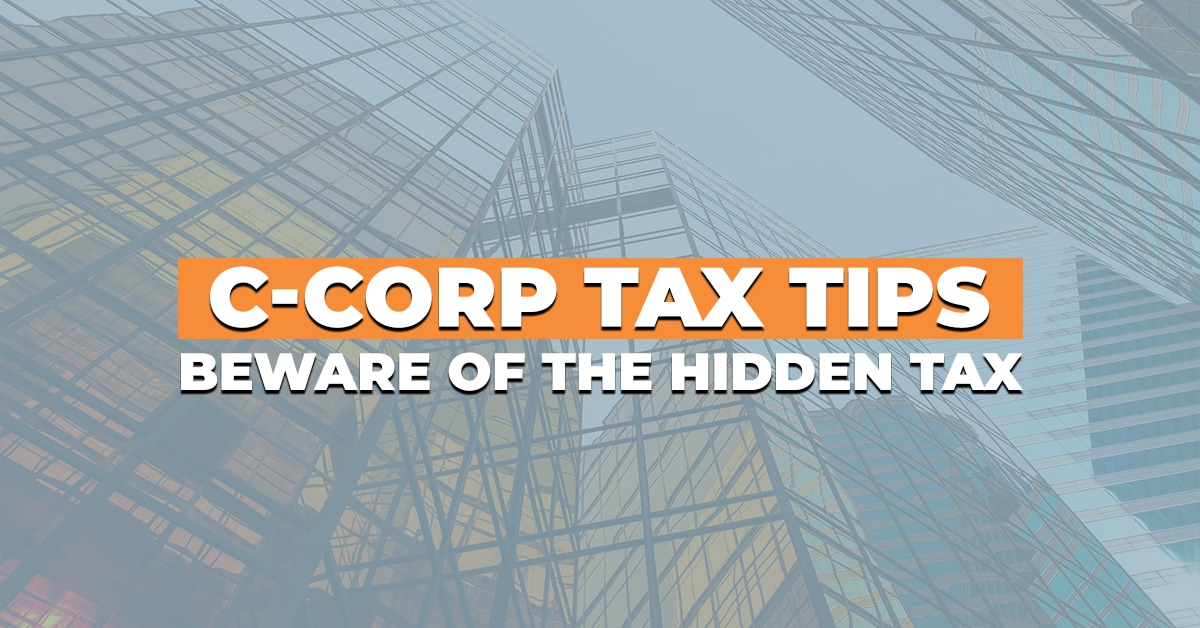
There are a few things in life that are certain: death, taxes, and the need to keep your business finances separate from your personal ones. While most business owners are familiar with these, many don’t know about the accumulated earnings tax.
Corporate tax services like Jones CPA Group provides can aid businesses of all sizes in saving money on their taxes; by taking advantage of tax breaks and deductions, companies can reduce their taxable income and lower their tax liability. Corporate tax services can provide several benefits to both small businesses and large corporations, like helping you understand the accumulated earnings tax.
This penalty tax is levied against corporations who succeed but fail to distribute their profits in a way acceptable to the Internal Revenue Service. It is a little-known but important part of owning a business. This article will explain what it is, who owes it, and how to avoid it.
How the Tax Works
The accumulated earnings tax, as opposed to the tax paid when you file your business tax return, is a 20 percent corporate-level penalty tax imposed by the IRS. You must undergo an IRS audit documenting your failure to pay dividends to be subjected to the tax.
If the corporation’s total earnings exceed $250,000, or $150,000 for a personal service corporation, the corporation cannot show that the “excess” earnings accumulation is necessary for meeting financial obligations.
Here’s why you should be upset with this information. Lawmakers set the $250,000 cap in 1981, which became effective on January 1, 1982. It hasn’t been adjusted for inflation since that time, which was forty years ago. That’s absurd, to be honest. If you input that $250,000 into the inflation calculator, the outcome is $774,910.
You are unable to accomplish that, though. Instead, if your accumulated earnings exceed $250,000 or a pitiful $150,000 if you are a personal service corporation, you may be subject to the 20 percent accumulated earnings tax. Although it applies to all corporations, including publicly traded, the 20% penalty tax specifically targets small corporations.
What Can You Do?
Why do you require accumulated earnings of more than $250,000 ($150,000 if you are a personal service corporation)? You won’t have any issues if you can satisfactorily respond to the IRS’s query.
However, do not wait for the audit and question. Take the initiative. Get your justifications and financial details into the company minutes. For example, per IRC Section 303, you require the funds to cover the shareholder’s death taxes, funeral costs, and other associated costs. Because shareholders do pass away.
You require the cash to close down, sell, and attend to other business demands brought on by the owner’s (shareholder’s) passing. Be sure to consider the following reasons why you should maintain the profits within the corporation.
The IRS provides a great list of justifications for accumulating C company earnings in Reg. Section 1.537-2, as follows:
- Plan for a legitimate business expansion or plant replacement
- Buy a company and pay off the corporation’s debt
- If it’s essential to continue the corporation’s operations
- Provide for investing in or loans to suppliers or clients.
- Provide for foreseeable product liability damages.
The IRS considers the following as likely invalid justifications for generating the earnings based on this same regulation:
- Making loans to the shareholders
- Lending to other businesses and corporations backed by the owners
- Making investments in properties unrelated to the corporation’s operations Purchasing securities unrelated to the company’s operations
- Invoking the need for irrational contingencies and risks
How the Triple Tax Works
Will was disinterested. His company made a million-dollar profit. When the IRS inspects, they notice Will’s corporation has $1 million in cumulative earnings and inquire why. Will has no viable options and must pay $150,000 in cumulative profits tax.
He instructs his corporation to give him a dividend of $600,000 to bring the corporate accumulated earnings down to the $250,000 safe harbor after the audit and signing the payment.
First, there would not have been a penalty tax or dividend payment if Tim’s corporation had provided documentation for the $750,000 in accumulated earnings above the $250,000 safe harbor.
Second, even though Will pays a 23.8 percent tax on his dividend due to his high income, this tax may rise considerably. The tax legislation used to tax dividends like ordinary income; this was harsh and is currently being discussed again.
Don’t give the IRS easy access to the accrued earnings tax for you or anyone else who runs a C business. The best response to this tax is to determine the corporation’s financial requirements and include those figures in the company minutes and business strategies.
The corporate tax rate of 21% can persuade you to keep more in your C corporation. If the cumulative earnings of your corporation reach $250,000 ($150,000 if you run a personal service C corporation), you should (no, must) prepare paperwork demonstrating why you require the money internally rather than handing it out as dividends.
You pay a needless and threefold tax if you are subject to the 20% accumulated earnings penalty tax: corporate income tax, tax on extra earnings that have accumulated, and dividend income tax.
Who Can Help with the Process?
Outsourced corporate bookkeepers can help business owners track their earnings and expenses to avoid being taxed on their accumulated profits. They can also help business owners keep track of their costs so that they can deduct them from their income taxes. This can help business owners save money and time.
Many small business owners and entrepreneurs are unaware of the many benefits they can receive from working with a Certified Public Accountant (CPA). A CPA can help save small business owners money on their taxes and offer invaluable financial planning and cash flow management advice.
For example, a CPA can help small business owners determine which deductions they are eligible for and offer guidance on how to best structure their business to maximize profits.
In addition, a CPA can also provide peace of mind to small business owners by ensuring that financial records are up-to-date. As a result, hiring a CPA is often one of the best decisions a small business owner can make.
Best Houston accountants, like Jones CPA Group, LLC, have a wealth of experience working with small businesses and can offer the customized service essential for success. When searching for the best CPA for small businesses, look for one with expertise in your industry and specific needs.
Remember, the accumulated earnings tax is a 20 percent corporate-level penalty tax imposed by the IRS. This hidden tax was set in 1981 and has not been adjusted for inflation. If you input that $250,000 into the inflation calculator, it would be equivalent to over $1 million today. Beware of this hidden tax when filing your business t






